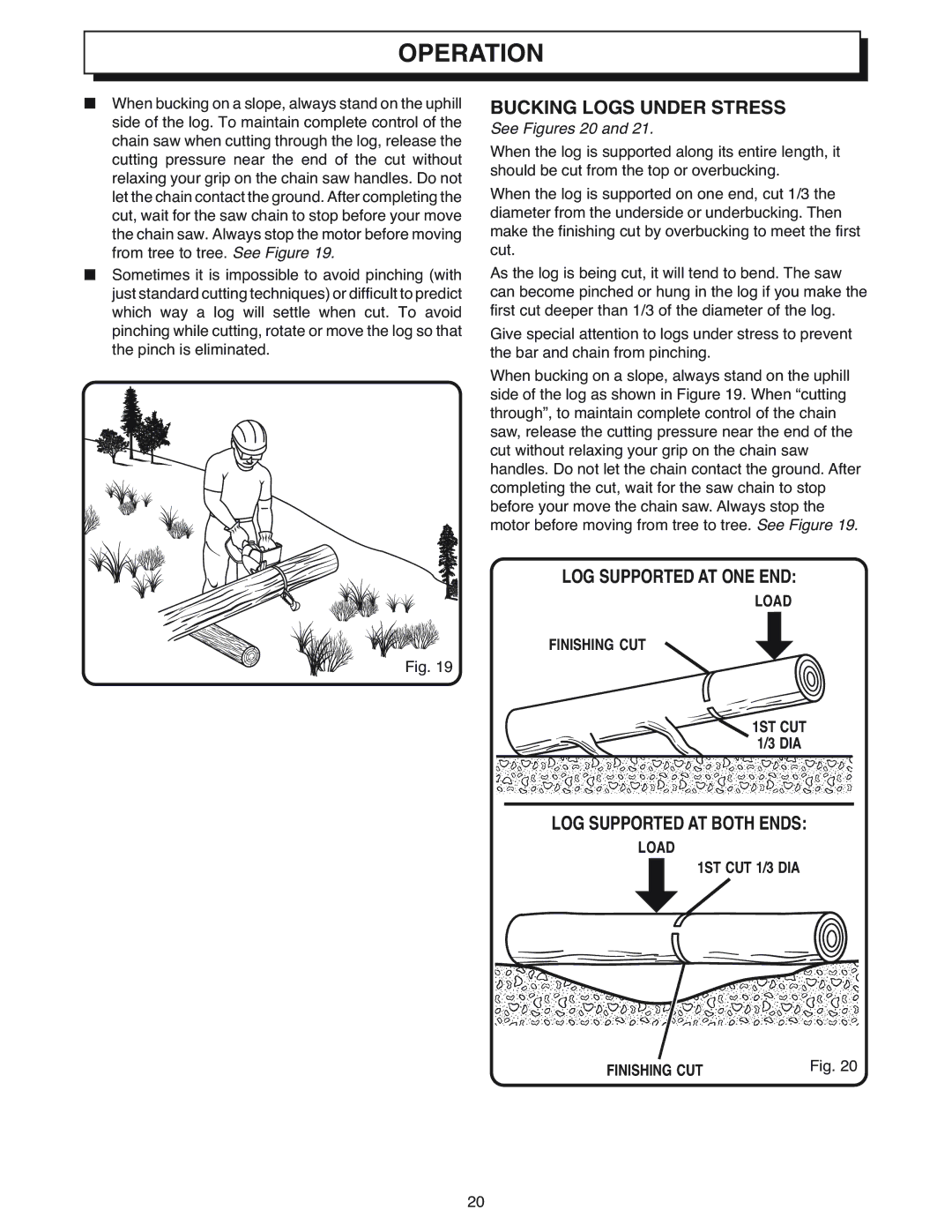
OPERATION
■When bucking on a slope, always stand on the uphill side of the log. To maintain complete control of the chain saw when cutting through the log, release the cutting pressure near the end of the cut without relaxing your grip on the chain saw handles. Do not let the chain contact the ground. After completing the cut, wait for the saw chain to stop before your move the chain saw. Always stop the motor before moving from tree to tree. See Figure 19.
■Sometimes it is impossible to avoid pinching (with just standard cutting techniques) or difficult to predict which way a log will settle when cut. To avoid pinching while cutting, rotate or move the log so that the pinch is eliminated.
Fig. 19
BUCKING LOGS UNDER STRESS
See Figures 20 and 21.
When the log is supported along its entire length, it should be cut from the top or overbucking.
When the log is supported on one end, cut 1/3 the diameter from the underside or underbucking. Then make the finishing cut by overbucking to meet the first cut.
As the log is being cut, it will tend to bend. The saw can become pinched or hung in the log if you make the first cut deeper than 1/3 of the diameter of the log.
Give special attention to logs under stress to prevent the bar and chain from pinching.
When bucking on a slope, always stand on the uphill side of the log as shown in Figure 19. When “cutting through”, to maintain complete control of the chain saw, release the cutting pressure near the end of the cut without relaxing your grip on the chain saw handles. Do not let the chain contact the ground. After completing the cut, wait for the saw chain to stop before your move the chain saw. Always stop the motor before moving from tree to tree. See Figure 19.
LOG SUPPORTED AT ONE END:
LOAD
FINISHING CUT
1ST CUT
1/3 DIA
LOG SUPPORTED AT BOTH ENDS:
LOAD
1ST CUT 1/3 DIA
FINISHING CUT | Fig. 20 |
20
